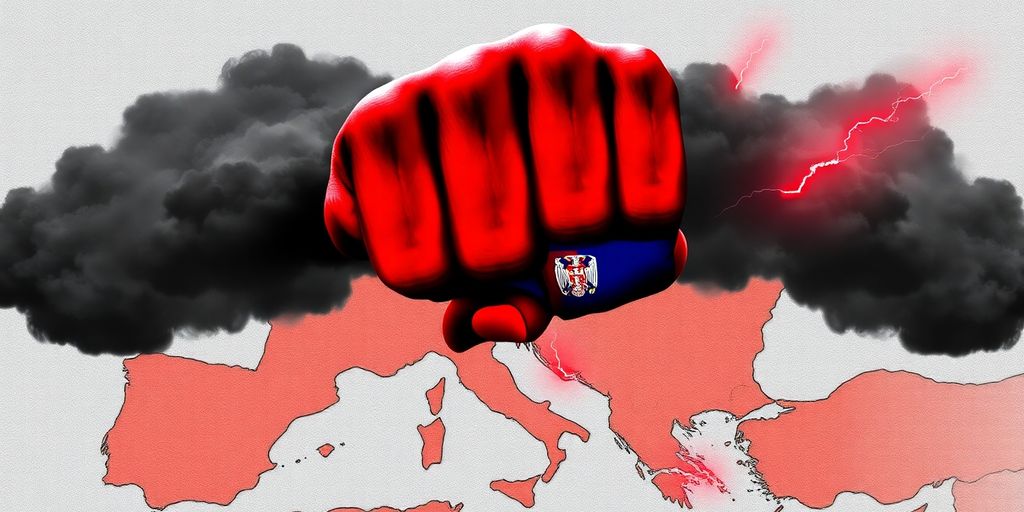Rising tensions in the Balkans, fueled by Serbia’s increasingly nationalistic rhetoric and growing pro-Russian influence, are threatening regional stability. Recent military alliances and political maneuvers by Serbian leaders, particularly in relation to Kosovo and Republika Srpska, echo past conflicts and raise concerns about a potential resurgence of violence in the Western Balkans.
A Volatile Geopolitical Landscape
The Western Balkans are experiencing renewed political instability, partly due to the stalled EU integration process, which has created a vacuum for external powers like Russia and China to expand their influence. Russia’s close ties with Serbia and Republika Srpska are rooted in shared anti-Western narratives, energy dependence, and Moscow’s backing of Serbia on the Kosovo issue. Serbian media, largely state-controlled, often amplify pro-Russian messages and portray new military alliances as responses to perceived threats from NATO partners.
Serbia’s "Serbian World" Ambitions
Serbia’s expansionist policy, dubbed the "Serbian World" (Srpski svet), is a rebranded form of the "Greater Serbia" project, aiming to consolidate Serbian political and cultural influence across the region. This concept, promoted by figures close to Russian President Putin, seeks to unite Serbs without necessarily territorial expansion. Milorad Dodik, the leader of Republika Srpska, has openly embraced this concept, advocating for independence from Bosnia and Herzegovina and undermining its legitimate state structures. His actions, including signing legislation that bans Bosnia and Herzegovina’s police and judiciary from operating in Republika Srpska, are seen as direct affronts to Bosnia’s sovereignty and the Dayton Agreement.
Echoes of the Past and the Risk of Conflict
Serbia’s current rhetoric, reminiscent of Slobodan Milošević’s narrative of "Serb victimhood," is used to justify actions and mobilize citizens. Disinformation campaigns, particularly regarding Kosovo, portray an alleged "ethnic cleansing of Serbs," setting the stage for potential violence. While observers suggest immediate war is unlikely due to insufficient resources and the overwhelming NATO presence, the region has seen a significant arms build-up. Croatia has acquired Rafale fighter planes and is negotiating for Leopard tanks, while Serbia is purchasing weapons systems from Russia and China.
Key Takeaways
- Serbia’s nationalistic rhetoric and pro-Russian influence are destabilizing the Western Balkans.
- The "Serbian World" concept aims to consolidate Serbian influence, echoing past "Greater Serbia" ambitions.
- Milorad Dodik’s separatist agenda in Republika Srpska, supported by Serbia, threatens Bosnia and Herzegovina’s sovereignty.
- Disinformation campaigns and the portrayal of "Serb victimhood" are used to justify actions and mobilize support.
- Despite a significant arms build-up in the region, immediate large-scale conflict is considered unlikely by analysts, though tensions remain high.
Sources
- Western Balkans peace threatened by new military alliances? – DW – 04/11/2025, DW.
- Worrying Echoes of the Past in the Balkans, Hudson Institute.
- Fact vs. Fiction: Understanding Russia’s Influence in the Western Balkans, ISPI.
- The Bells of a New War: Serbia’s Old Rhetoric as a New Threat to the Balkans – Novinite.com, Novinite.com.
- Trump’s tinderbox: US politics and the next war in the Balkans, European Council on Foreign Relations (ECFR).





